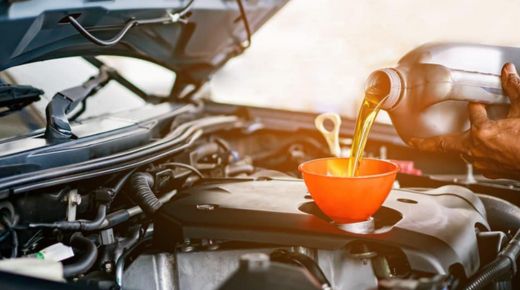Maintaining a vehicle in optimal condition requires regular attention and care. Among the various maintenance tasks, oil changes are crucial for ensuring engine performance, longevity, and efficiency. This article explores the essential benefits of regular oil changes and why they should be a top priority for every vehicle owner.
Understanding Engine Oil and Its Role
Engine oil serves multiple purposes in a vehicle’s engine. It lubricates the moving parts, reduces friction, helps dissipate heat, and prevents corrosion. Over time, oil can become contaminated with dirt, debris, and other impurities, leading to reduced effectiveness. Regular oil changes are necessary to replace the old, degraded oil with fresh lubricant, ensuring that the engine operates smoothly and efficiently.
Improved Engine Performance
One of the most significant benefits of regular oil changes is improved engine performance. Fresh oil allows for better lubrication, reducing friction between engine components. This enhanced lubrication enables the engine to operate more smoothly, resulting in improved power output and responsiveness. A well-lubricated engine experiences less wear and tear, leading to better overall performance, especially during acceleration and heavy loads.
Enhanced Fuel Efficiency
Regular oil changes contribute significantly to fuel efficiency. As oil breaks down and becomes contaminated, its viscosity changes, making it less effective at lubricating engine components. This inefficiency forces the engine to work harder, which in turn consumes more fuel. By keeping the engine properly lubricated with fresh oil, you can optimize fuel efficiency, saving money at the pump and reducing your carbon footprint.
Extended Engine Life
Investing in regular oil changes is an investment in your vehicle’s longevity. The contaminants that accumulate in old oil can cause significant damage to engine components over time. These impurities can lead to sludge buildup, which restricts oil flow and can cause overheating or engine failure. By changing the oil regularly, you help prevent these issues, ensuring that your engine runs smoothly and lasts longer. A well-maintained engine can also enhance the resale value of your vehicle.
Preventing Overheating
Engines generate a considerable amount of heat during operation. Oil plays a crucial role in dissipating this heat, helping to regulate engine temperature. As oil degrades, its ability to transfer heat diminishes, increasing the risk of overheating. Regular oil changes help maintain optimal oil viscosity and thermal stability, reducing the chances of engine overheating. This is especially important during hot weather or heavy towing, where the engine is under more stress.
Maintaining Clean Engine Components
Regular oil changes help keep engine components clean by removing sludge and debris that can accumulate over time. Clean oil ensures that critical parts, such as pistons and valves, function correctly. This cleanliness not only supports performance but also minimizes the risk of costly repairs due to engine damage. By ensuring that your engine remains clean, you are taking proactive steps to extend its lifespan.
Better Engine Start-Up
Fresh oil significantly improves the start-up performance of an engine, particularly in cold weather. Oil can thicken in low temperatures, making it harder for the engine to turn over. Using the right type of oil and changing it regularly ensures that your engine starts smoothly and quickly, regardless of external temperatures. This improved start-up performance contributes to overall engine health and reliability.
Cost-Effectiveness of Preventive Maintenance
While some vehicle owners may view oil changes as an unnecessary expense, they are actually a cost-effective preventive maintenance measure. Regular oil changes can prevent more severe and costly engine problems down the line. For example, a minor issue like sludge buildup can lead to a complete engine overhaul if not addressed promptly. By investing in routine oil changes, you can save money in the long run by avoiding major repairs.
Conclusion
In summary, regular oil changes are vital for maintaining optimal engine performance and ensuring the longevity of your vehicle. By improving engine performance, enhancing fuel efficiency, preventing overheating, and maintaining clean engine components, routine oil changes provide numerous benefits that far outweigh their costs. Vehicle owners should prioritize oil changes as part of their routine maintenance schedule to revitalize their ride and keep their engines running smoothly for years to come. Whether you’re a seasoned car enthusiast or a casual driver, understanding the importance of oil changes can make all the difference in your vehicle’s performance and reliability.




